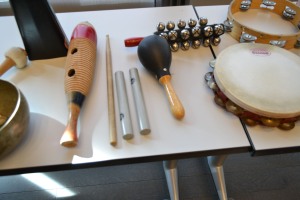Black Music Lab
An in-development hub at Brown Arts Institute for the practice and study of African and African Diasporic musics.
Black Music Lab
An in-development hub at Brown Arts Institute for the practice and study of African and African Diasporic musics.
About Black Music Lab
The Black Music Lab is an in-development hub at Brown Arts Institute for artists and scholars on campus and in the greater Providence area who are interested in the practice and study of African and African Diasporic musics. Launched in Fall 2022, the Black Music Lab was conceived by Dr. Charisse Barron and Dr. Enongo Lumumba-Kasongo to serve as a space at Brown that centers the intellectual and creative exploration of musical forms such as hip-hop, black sacred musics, R&B, and house among other black musico-cultural traditions that remain underrepresented within academic musical spaces despite their overwhelming sonic influence and popularity across the broader global soundscape. The Black Music Lab is also invested in highlighting the works of artists and scholars who explore black expressive modes within country music, punk, noise, metal, folk, western classical, and other musical traditions that are often disconnected from popular and scholarly accounts of black musicking.
As an extension of BAI’s demonstrated commitment to interdisciplinary study and rhizomatic collaboration, the primary goals of the Black Music Lab include:
- Amplifying the creative and scholarly projects already being undertaken by members of the Brown community as well as artists and scholars in the extended Providence communities;
- Hosting and co-sponsoring relevant artist talks, performances, informal gatherings, symposia, film series, conferences, and other events;
- Building new channels for crosstalk between faculty, staff, and students working in/across departments and programs such as Music, Africana Studies, Modern Culture & Media (MCM), Theatre Arts & Performance Studies (TAPS), the Center for the Study of Race and Ethnicity in America (CSREA), and the Center for Digital Scholarship (CDS), among others;
- Creating opportunities for meaningful dialogue and collaborations with local artists, historians, and community groups as well as partners at other academic institutions who work within different black musical traditions.
Faculty Director:
Dr. Enongo Lumumba-Kasongo
enongo@brown.edu
Recent Projects and Events
CONCERT
A free one-night concert that celebrates the creative practices of musician L’Rain.
MUSIC | DANCE
A concert event and dance party that celebrates the creative practices of SAMMUS (Enongo Lumumba-Kasongo), Nadine Lee, and madison moore.
MUSIC
The Black Music Lab presents the Tomeka Reid Quartet // Tomas Fujiwara's 7 Poets Trio.
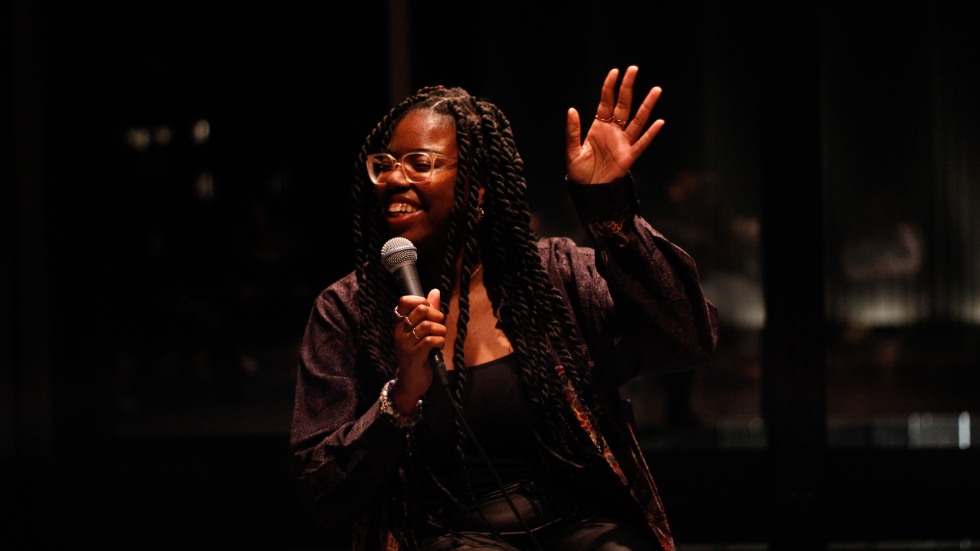
Black Music Lab Mixer. Photo Credit: Brianna J. Cox.
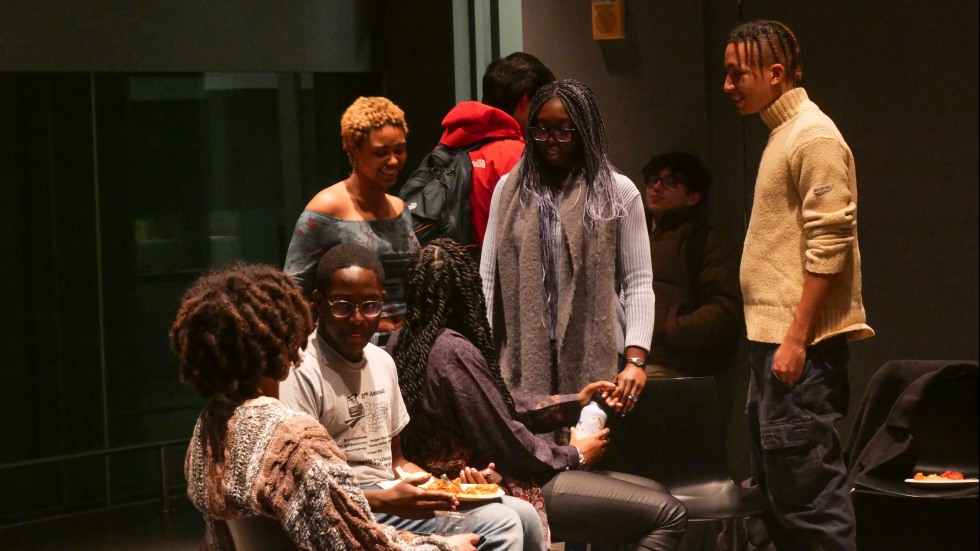
Black Music Lab Mixer. Photo Credit: Brianna J. Cox.
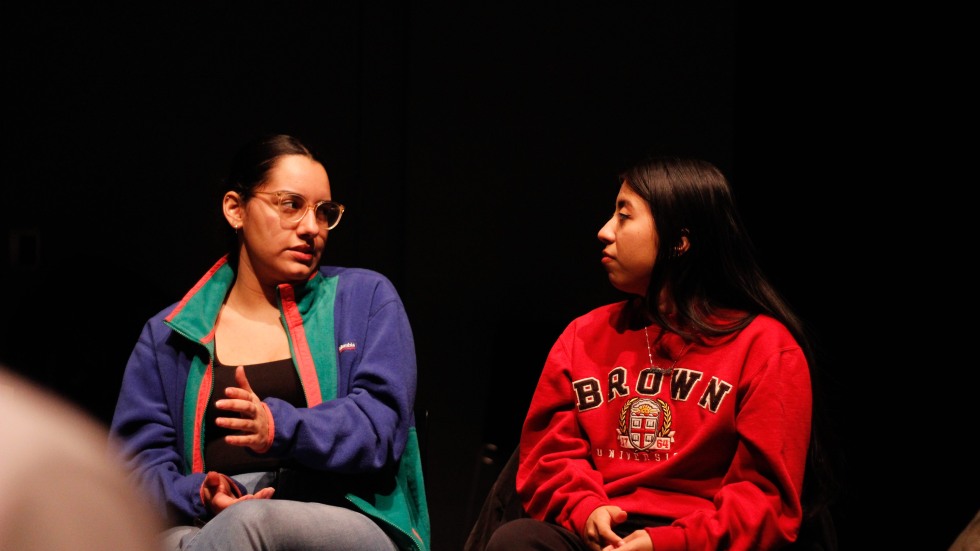
Black Music Lab Mixer. Photo Credit: Brianna J. Cox.
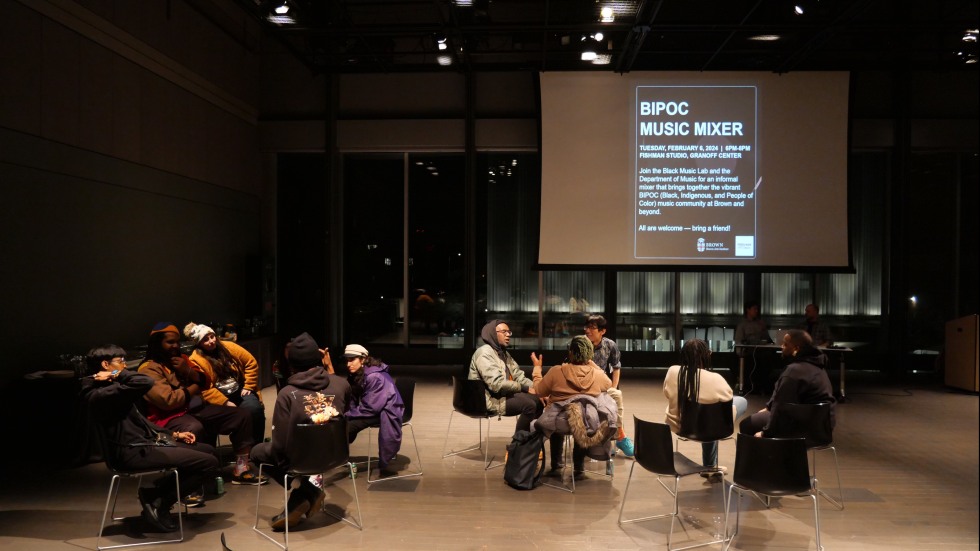
Black Music Lab Mixer. Photo Credit: Brianna J. Cox.
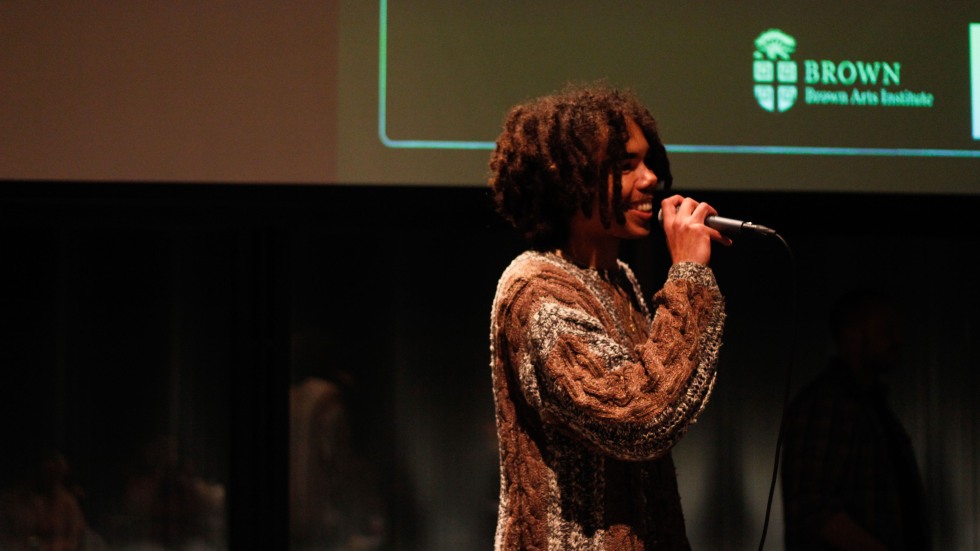
Black Music Lab Mixer. Photo Credit: Brianna J. Cox.
